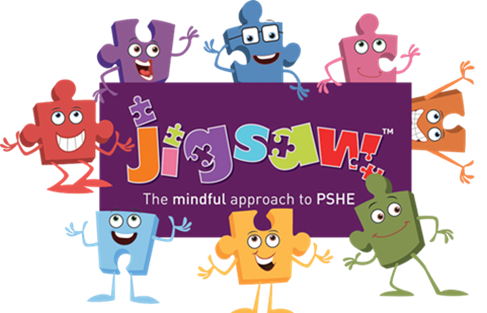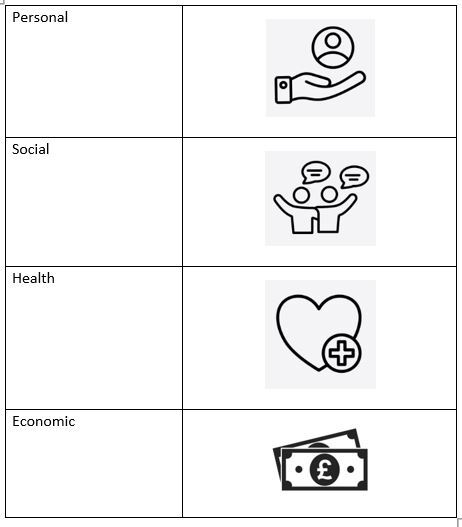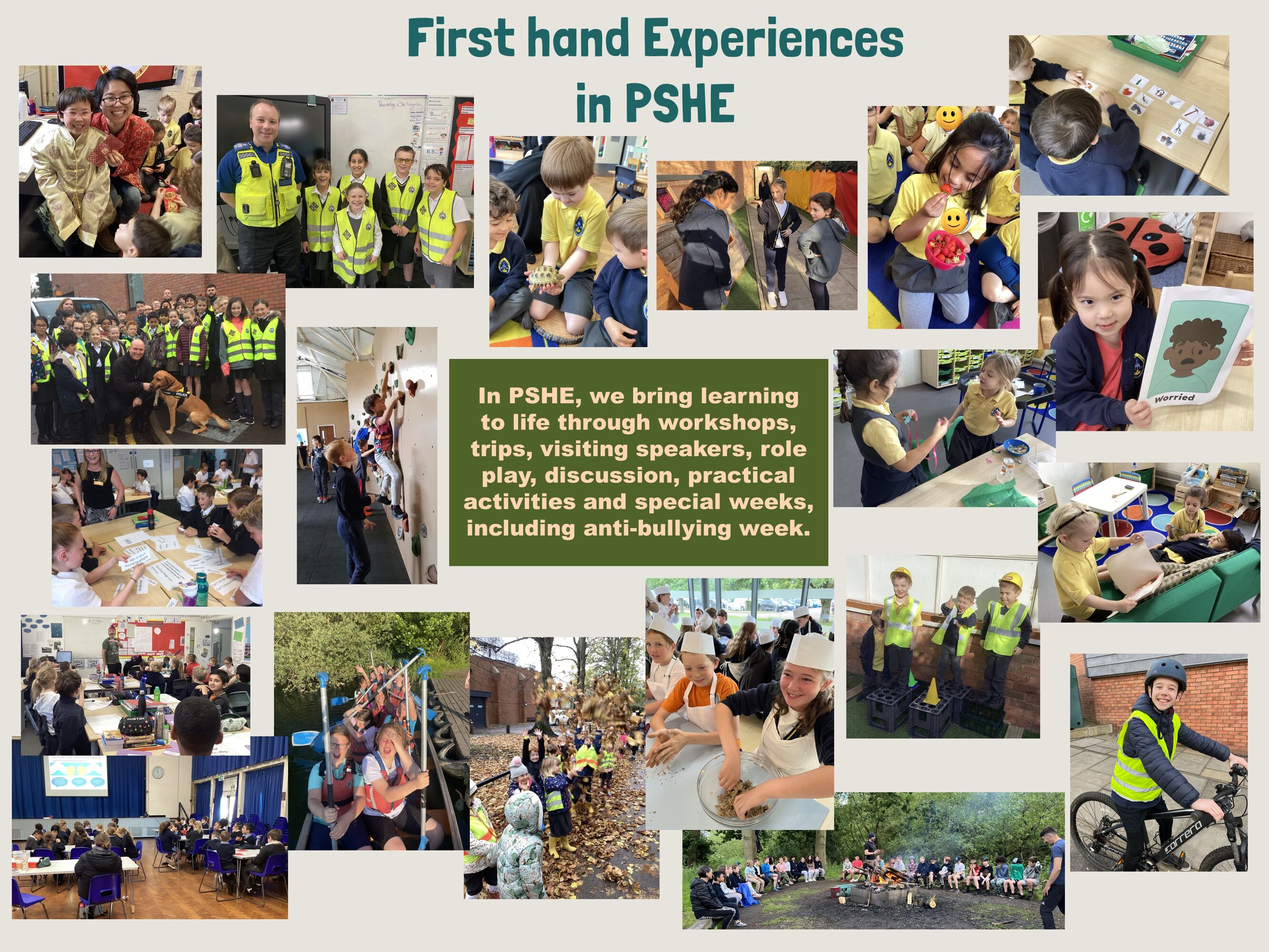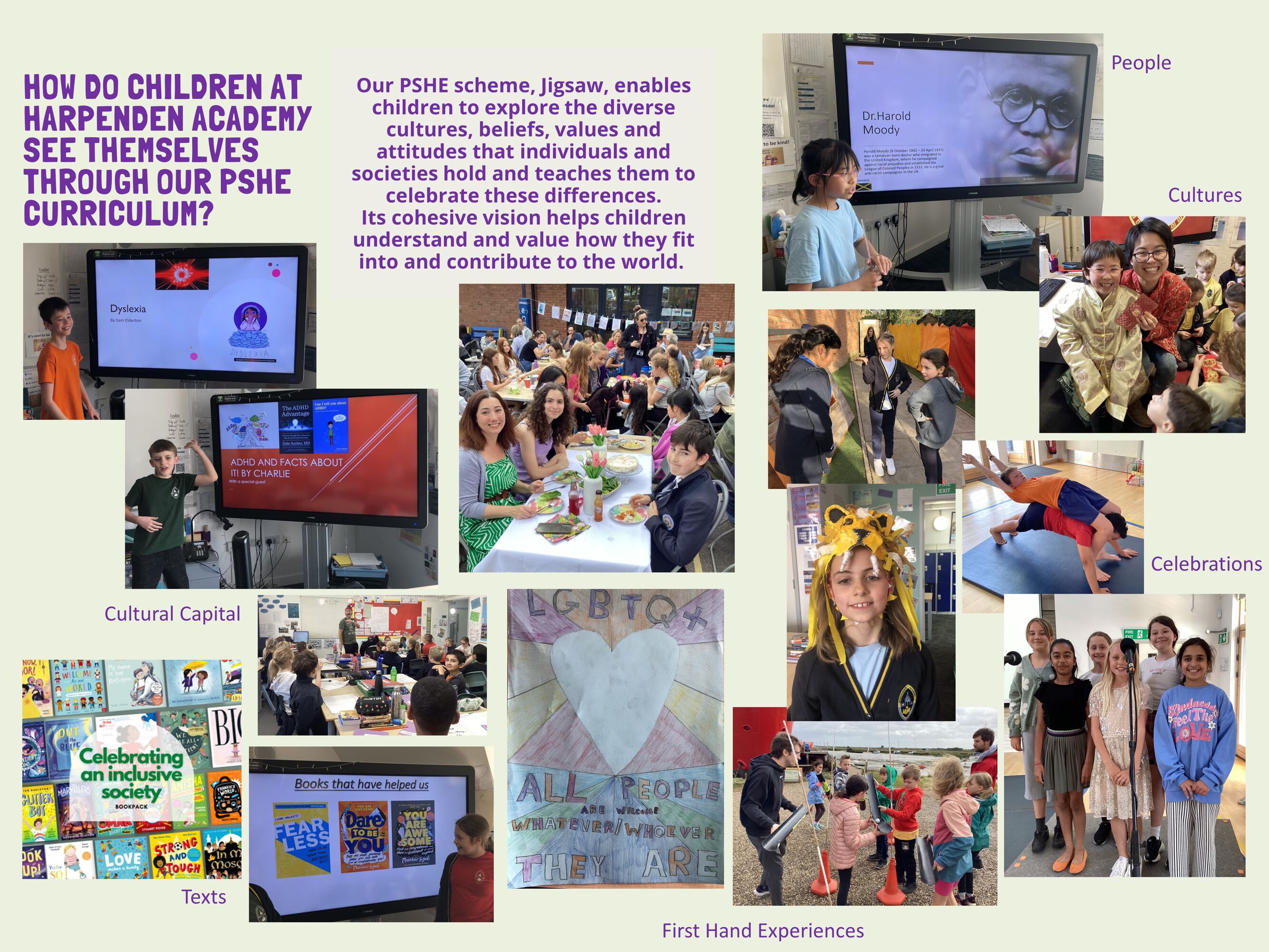PSHE
PSHE Education (Personal, Social, Health and Economic Education) is a planned programme of learning through which children acquire the knowledge, understanding and skills they need to successfully manage their lives – now and in the future. We have adopted the Jigsaw scheme with a strong emphasis on emotional literacy, building resilience and nurturing mental and physical health. Jigsaw brings together PSHE Education, compulsory Relationships and Health Education, emotional literacy, mindfulness, social skills and spiritual development.
We are dedicated to Educating Hearts and Minds meaning we aim to develop the ‘whole child’ intellectually, morally, socially, physically, culturally and spiritually. At Harpenden Academy, PSHE is at the core of all we do and enables our children to become independent, confident, healthy and responsible members of society. We aspire for the children to view themselves as lifelong learners who always reach for the stars.

Our PSHE schema are:

Oracy
First Hand Experiences

Belonging



























